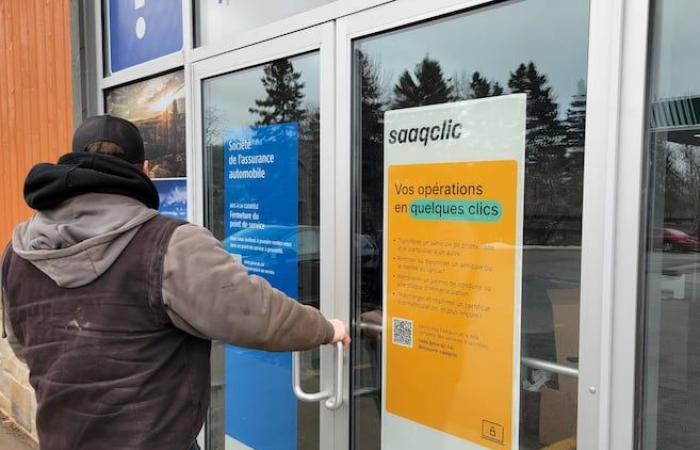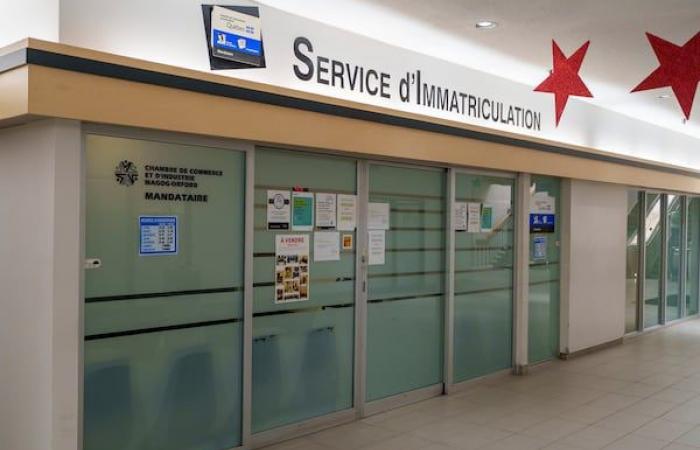But since December 11, the doors of the premises have been barred. The Société de l’assurance automobile du Québec (SAAQ) closed the branch of this municipality of 3,500 inhabitants, to the great dismay of the mayor, Solange Morneau. “I can tell you I did everything, but their mind was made up,” she said.
During the negotiations, she says, the SAAQ told her that the service point — for which the municipality was the agent — was not “efficient enough,” which the mayor refutes. She also does not believe that the branch represented too high a cost for the Society, since the municipality paid the employees itself.
The reaction of her fellow citizens, who will now have to drive half an hour to get to the SAAQ service center in Rivière-du-Loup, was “strong,” said the mayor.
“It’s worrying, because we’re still losing services in the region.”
— Solange Morneau, mayor of Saint-Pascal
Wave of closures in the region
The closure of the small Saint-Pascale branch is not an exception. In recent weeks, the SAAQ has announced the closure of an unprecedented number of service points, especially in the regions.
In addition to that of Saint-Pascal, the service points of Saint-Raphaël, in Chaudière-Appalaches, Rawdon, in Lanaudière, Magog, in Estrie, and Trois-Rivières, in Mauritius, have also closed down. The service point located in La Salle, in Montreal, also closed recently. A sixth closure is planned for the end of 2025 in Saint-Rémi, in Montérégie.
This is the first time in five years that so many small branches have closed their doors in such a short time. This wave of closures comes shortly after the announcement of the reduction in opening hours in around twenty branches in the region.
“Changing habits”
The SAAQ explains these closures by the “change in user habits” and the drop in ridership. The Company says it “wants to consolidate its services,” explains its spokesperson, Geneviève Perron.
Since 2019, she specifies, the volume of services offered by agents has decreased by 24% due, among other things, to the digital shift and changes in customer services.
The Saint-Pascal service point, in Bas-Saint-Laurent, closed its shop on December 11. (Patricia Rainville/Investigation team)
“Closing a service point is not a decision taken lightly,” emphasizes Ms. Perron. This decision takes into account evolving needs considering that services evolve and customer behavior changes. The ability of nearby service centers to meet customer demand is considered for each situation.”
Discontent
Met at the Saint-Pascal service point, a few days before its closure, a motorist was unhappy. “My habits have not changed with SAAQclic,” says the sixty-year-old. I came here when I had a problem or a transaction to make. There, I will have to go to Rivière-du-Loup, it’s still 80 kilometers round trip.”
The SAAQ office in Magog is also permanently closed. Magog residents must now travel to Sherbrooke or Waterloo. (Jean Roy/Archives La Tribune)
Just like Solange Morneau, the mayor of Magog, Nathalie Pelletier, denounced the closure of the SAAQ service point in her municipality, which she learned about in the newspapers. Magog was also not called upon to be part of the solution, she deplored in The Tribune. “It’s a loss of services for our citizens.”
Accounting approach
Maxim Fortin, researcher at the Institute for Socioeconomic Research and Information (IRIS), is not surprised that the SAAQ justifies the wave of regional closures with statistics on ridership. This is, according to him, one of the usual arguments of “new public management”, a method of managing public administrations which draws inspiration from practices in the private sector.
“The notion of service disappears a lot in the new public management. Which means that the maintenance of a service, the creation of a service, the development of a service, must always be supported by accounting profitability.”
— Maxim Fortin, researcher at IRIS
According to Mr. Fortin, this management method disadvantages the regions, because maintaining services there is more expensive than in urban areas.
“It’s not as if the new public management had it against the regions or against isolated places,” says Mr. Fortin. But the rather implacable logic of financial profitability, of quantified or quantifiable results, will mean that we are called upon to make decisions which will inevitably disadvantage remote sectors.”






